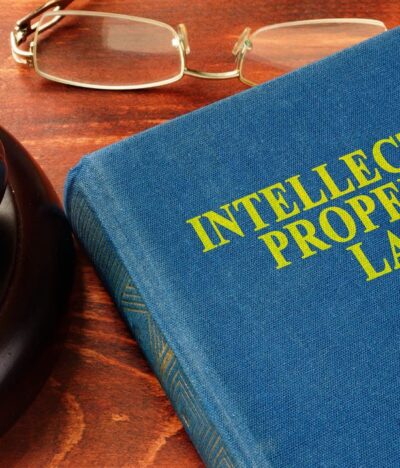A shareholder is an individual or legal entity that has an ownership stake in a corporation. A dispute between shareholders and the corporate officers, corporate directors, or majority stakeholder in the company can arise for a wide range of different reasons. Shareholder disputes have the potential to be extremely destructive for all parties involved. They can damage a corporation. In this article, our Santa Monica business law attorney discusses the most common types of shareholder disputes and explains why a proactive approach is so important in these cases.
An Overview of the Most Common Shareholder Disputes
A shareholder dispute is an internal dispute, with a corporation. As with other types of internal disputes, a disagreement between shareholders can have serious ramifications for the company. It could cause significant damage to the underlying business. Some of the most common reasons shareholder disputes arise include the following
-
Breach of the Shareholder Agreement: A shareholder agreement is effectively a contract between the corporation itself and its shareholders. All parties should have a thorough understanding of the rights and obligations under the shareholder agreement. Many shareholder disputes arise because of an alleged breach of the shareholder agreement.
-
Breach of Fiduciary Duty: In most cases, high-ranking corporate executives owe a fiduciary duty to the company and its shareholders. Under California law (California Corporation Code § 309), a corporate director is generally required to act in a manner consistent with “the best interests of the corporation and its shareholders” using the professional care that “an ordinarily prudent person in a like position would use under similar circumstances.” A corporation officer or director can be held liable for breach of fiduciary duty. Other states, including Delaware, have similar corporate governance laws in place.
-
Disagreements Over the Direction of the Company: Some shareholder disputes arise over disagreements in the direction of the company. Most often, this is an issue for closely-held corporations. In smaller businesses and other closely-held companies, minority shareholders may have a significant financial interest in the direction of the business.
-
Alleged Oppression of a Minority Shareholder: Majority shareholders owe certain obligations to minority shareholders. A shareholder dispute could arise following allegations that a majority shareholder or a group of stakeholders representing the majority improperly mistreated minority shareholders. This is known as a shareholder oppression claim.
Why Preventing Shareholder Disputes is So Important
No business wants to get tied down in a lengthy, contested legal battle. All legal disputes cost time, money, energy, and focus. It is even more damaging when both sides of the disagreement are technically on the same side. After all, majority shareholders, minority shareholders, and corporate directors can all benefit from a company’s success. Among other things, shareholder disputes can cause:
-
Additional expenses for the company;
-
Distraction from running the business; and
-
The potential for a costly, time-consuming lawsuit.
A Southern California business that is locked down in a difficult shareholder dispute may fall behind its competitors. Not only are valuable financial resources being tied up in navigating a shareholder dispute, but the focus is being taken off of normal business operations.
Four Strategies to Help Reduce the Risk of a Shareholder Dispute
There are proactive steps that corporate leaders can take to help reduce the risk of shareholder disputes and resolve them efficiently and amicably if they do arise. Here are four strategies that businesses and business owners can use to help reduce the risk of a shareholder dispute:
-
Comprehensive Shareholder Agreement: A shareholder agreement is a critically important document. The Cornell Legal Information Institute defines a shareholder agreement as a binding contract that clearly states “shareholders’ rights, privileges, protections and obligations.” A shareholder agreement is at the fundamental basis of the relationship between the corporation and its shareholders. California companies that have a comprehensive, professionally-drafted shareholder agreement are far less likely to run into problems. Sloppy shareholder agreement can lead to confusion and legal disputes.
-
Thorough Record-Keeping: Thorough record-keeping can go a long way to reducing the risk of a shareholder dispute. It may not be surprising to learn that the majority of shareholder disputes are centered around a corporations’ finances—it could be a dispute about revenue, distributions, executive compensation, or precise ownership stake. Regardless, well-organized business records will help to ensure that everyone is on the same page. If a shareholder does raise a complaint over a financial issue or other similar matter, accurate records can resolve the matter efficiently.
-
Resolutions Proposed at Meetings: When a shareholder or group of shareholders raises an initial complaint (or question) regarding the corporation’s actions, it is often a best practice to address the matter through a resolution proposed at a meeting. Assuming it is allowable under the company’s official governing documents, the Board of Directors can call a meeting of the shareholders to formally deal with a particular issue in a proactive manner. Through this method, you may be able to resolve an outstanding issue through voting power or simply through a face-to-face discussion.
-
Effective Dispute Resolutions Procedures: You cannot completely eliminate the risk of a disagreement with shareholders. Even when a California corporation has the best possible structure in place, disputes can still arise among the shareholders. For this reason, it is imperative that a company has an effective dispute resolution procedure in place. Not all shareholder disputes are created equal. While some shareholder disputes can cause serious financial harm to the company, others can be resolved in an amicable and cost-effective manner. Strong and proactive dispute resolution procedures help companies resolve shareholder disputes at the lowest possible level—ideally prior to any litigation.
Contact Our Santa Monica, CA Shareholder Dispute Attorney Today
At KLEIN.LAW, our California business lawyer provides strategic, efficient, results-driven representation in shareholder cases. If you have any specific questions about preventing shareholder disputes, we can help. Call us at (310) 295-2261 or send us a direct message for a confidential consultation. With a law office in Santa Monica, we provide legal representation in shareholder disputes throughout Southern California, including in Los Angeles, Burbank, Pasadena, Torrance, Long Beach, Manhattan Beach, Inglewood, and Beverly Hills.




